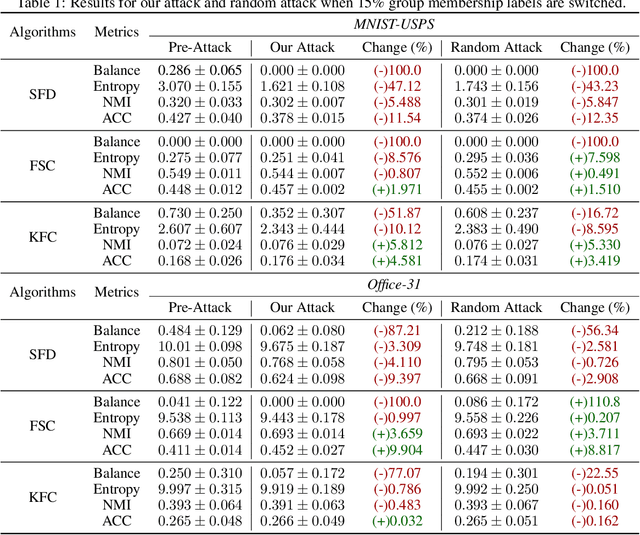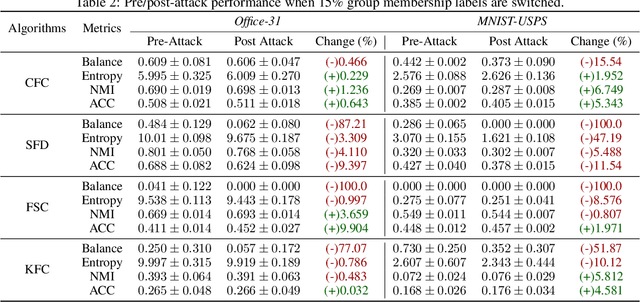Robust Fair Clustering: A Novel Fairness Attack and Defense Framework
Paper and Code
Oct 04, 2022



Clustering algorithms are widely used in many societal resource allocation applications, such as loan approvals and candidate recruitment, among others, and hence, biased or unfair model outputs can adversely impact individuals that rely on these applications. To this end, many fair clustering approaches have been recently proposed to counteract this issue. Due to the potential for significant harm, it is essential to ensure that fair clustering algorithms provide consistently fair outputs even under adversarial influence. However, fair clustering algorithms have not been studied from an adversarial attack perspective. In contrast to previous research, we seek to bridge this gap and conduct a robustness analysis against fair clustering by proposing a novel black-box fairness attack. Through comprehensive experiments, we find that state-of-the-art models are highly susceptible to our attack as it can reduce their fairness performance significantly. Finally, we propose Consensus Fair Clustering (CFC), the first robust fair clustering approach that transforms consensus clustering into a fair graph partitioning problem, and iteratively learns to generate fair cluster outputs. Experimentally, we observe that CFC is highly robust to the proposed attack and is thus a truly robust fair clustering alternative.
 Add to Chrome
Add to Chrome Add to Firefox
Add to Firefox Add to Edge
Add to Edge